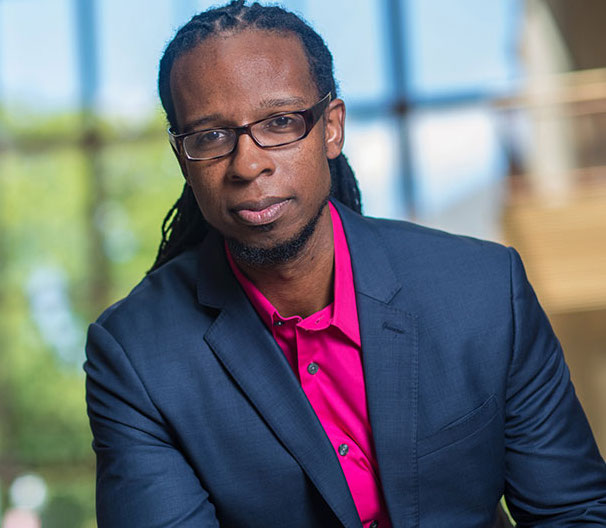
Catching up with Ibram Kendi
With a second New York Times bestseller to his name, the former UF professor returns to discuss how to be an antiracist.
What drew you to UF in 2015?
“The history department and African American Studies: the great folks over there. UF’s ambition and investment to rise to the top of the ranks. The eclectic students. My affection for Florida: its climate and how it is a microcosm of America.”
You moved on to American University to focus on research and education aimed at changing policy. What's your biggest dream for the Antiracist Research & Policy Center?
“We dream of innovating research-based policy solutions that policymakers institute, and these antiracist policies end up reducing and eventually eliminate racial inequity and injustice in our society.”
In “How to be an Antiracist,“ you draw powerful parallels between cancer and racism. What do you hope comes from this comparison?
“I hope Americans will realize they and their nation have metastatic racism before it is too late. I hope Americans will treat metastatic racism in the way we treat metastatic cancer with local and systemic treatments.”
What reactions to the book so far have been most meaningful to you?
“The heartbeat of antiracism is confession, and I wanted the book through my own confessions to sound this heartbeat. So whenever the book causes people to look inward, to acknowledge the ways they are being racist, that means a lot to me.”
What do you miss about UF? About Gainesville?
“I miss the beauty of UF, of Gainesville. I miss my colleagues. I miss the sense of home I always felt there. I miss being a part of a public university rising to be the best in the nation.”
What types of audiences might not think they need to read “How to be an Antiracist,“ but could really benefit from it?
“Anyone and everyone who swears they are ‘not racist,’ or they can’t be racist would benefit from reading this book. Because they will learn there is no such thing as not racist. We are all either being racist or antiracist.”
What advice would you give to yourself as a college student?
“As you seek to challenge and transform society, you must be simultaneously challenging and transforming yourself. I would urge myself to develop a strong sense of self and purpose and direction in order to maneuver through this society.”
You're very candid in the book about your own past racism. How hesitant did you feel to share those stories?
“I was extremely hesitant and still feel ashamed about it, and still feel hesitant to talk about it. But I want to drill down through my own story that we are all either being racist or antiracist.”
What's next for you?
“I can’t wait for the release in March of ‘STAMPED: Racism, Antiracism, and You,’ a young adult version of ‘Stamped from the Beginning,’ with Jason Reynolds!”
An error was encountered while processing the URL. Please check the URL for any errors.